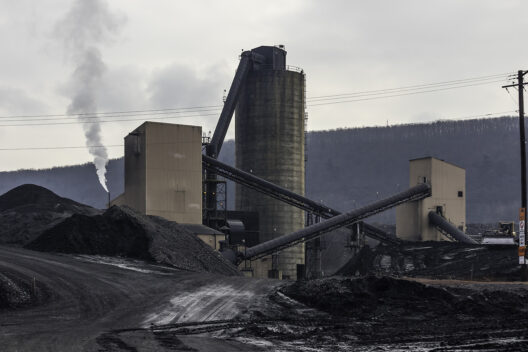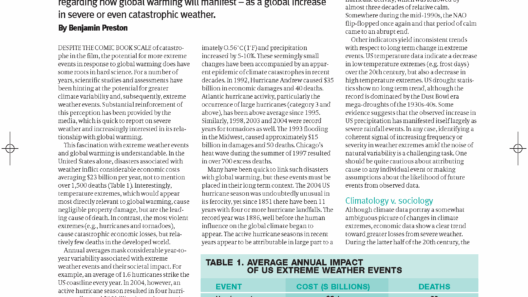Global warming is a critical issue that transcends environmental concerns and directly impacts economic stability. As the planet warms, economies worldwide face mounting pressures that extend beyond mere temperature changes. This intricate relationship between environmental conditions and economic systems necessitates a closer examination of the economic equation of global warming.
The first aspect to consider in this equation is the direct cost imposed by climate change. Extreme weather events—such as hurricanes, floods, and droughts—have escalated in frequency and intensity due to rising global temperatures. The economic ramifications of these disasters are staggering. For example, the damage from Hurricane Harvey in 2017 is estimated to exceed $125 billion. These expenditures reflect not only immediate disaster relief and infrastructure repair but also long-term consequences, including displacement of communities and loss of productivity.
Moreover, agriculture, a cornerstone of the global economy, is deeply affected by climatic shifts. Fluctuations in rainfall patterns and increases in temperature can disrupt crop yields, leading to food insecurity and inflated prices. The United Nations Food and Agriculture Organization has projected that if global temperatures rise by 2 degrees Celsius, crop yields for staples like rice and wheat could decline significantly, starving populations and straining economies reliant on agricultural output. Economic instability originating from food shortages tends to exacerbate political unrest, demonstrating an alarming feedback loop between food security and climate dynamics.
Beyond direct damages, global warming catalyzes a range of indirect economic consequences. One such consequence is the alteration of labor productivity. Elevated temperatures, particularly in tropical climates, can impair physical and cognitive performance in labor-intensive industries. A study by the National Bureau of Economic Research concluded that rising temperatures could reduce labor productivity by as much as 10% in hotter regions, leading to diminished economic output. Consequently, the impacts of global warming ripple through entire supply chains, driving up costs and constraining growth.
The economic narrative of global warming also includes the burgeoning green economy—an emerging sector aimed at mitigating environmental impacts. Transitioning to renewable energy sources, such as wind and solar power, not only addresses carbon emissions but also creates employment opportunities. The International Renewable Energy Agency reported that the renewable energy sector employed over 11 million people globally in 2018. Investment in clean technologies presents an attractive alternative to fossil fuels, potentially yielding economic revitalization amid the looming specter of climate change.
Conversely, the fossil fuel industry, traditionally seen as an economic linchpin, faces an existential crisis as climate concerns drive regulatory changes. Carbon pricing and emissions trading systems are becoming more commonplace, compelling industries to factor environmental costs into their operational frameworks. The implications of such measures are profound; companies that fail to adapt risk obsolescence and substantial financial losses. Transitioning away from carbon-intensive business models requires innovation and investment, yet also poses a formidable challenge for those unwilling or unable to pivot.
Furthermore, global warming generates geopolitical tensions. Water scarcity, driven by changing precipitation patterns and glacial retreat, is becoming increasingly contested. The potential for conflict over dwindling resources strains international relations and could lead to military engagements. For instance, in regions like the Middle East, water scarcity exacerbates pre-existing tensions, illustrating that the economic ramifications of climate change manifest not only domestically but also on a global stage.
Insurance markets are recalibrating in response to the heightened risk profile associated with climate change. Insurers are reevaluating their models, increasing premiums, and even withdrawing coverage in high-risk areas—far-reaching consequences that can alter real estate markets and impede development. The financial sector, thus, plays a pivotal role in shaping the trajectory of adaptation and resilience to climate impacts, as capital flows toward sustainable practices and innovations.
It is also crucial to understand the economic implications of climate inaction. Research indicates that failing to address the challenges posed by global warming could incur costs equivalent to several trillion dollars by the end of the century. The damages from sea-level rise alone threaten coastal economies, with some estimates suggesting loss of property worth $14 trillion by 2100 if current trends persist. Such projections starkly underscore the imperative to act decisively and collaboratively to forge sustainable solutions.
In reviewing the economic equation of global warming, one must acknowledge that it extends into the realm of social justice. Vulnerable populations bear the brunt of climate impacts, disproportionately affecting low-income communities and underrepresented groups. Policies that address environmental degradation must equally prioritize equity, ensuring that those most affected have access to resources and opportunities for recovery and adaptation. As climate change continues to progress, it is imperative for economic frameworks to incorporate strategies that lift the disadvantaged and foster inclusivity.
In conclusion, the economic equation of global warming is a complex interplay of direct and indirect costs, opportunities for innovation, geopolitical tensions, and social justice considerations. Addressing these challenges necessitates a holistic approach that integrates environmental stewardship with economic resilience. Understanding this intricate relationship is essential, as the stakes are not merely ecological; they encompass the very fabric of our global economy and society. The urgency to combat climate change is not a call to arms alone—it is an imperative to create a sustainable future for generations to come.








